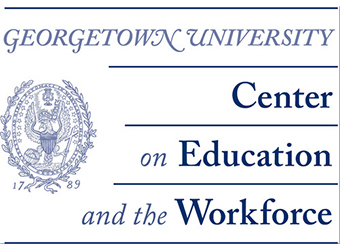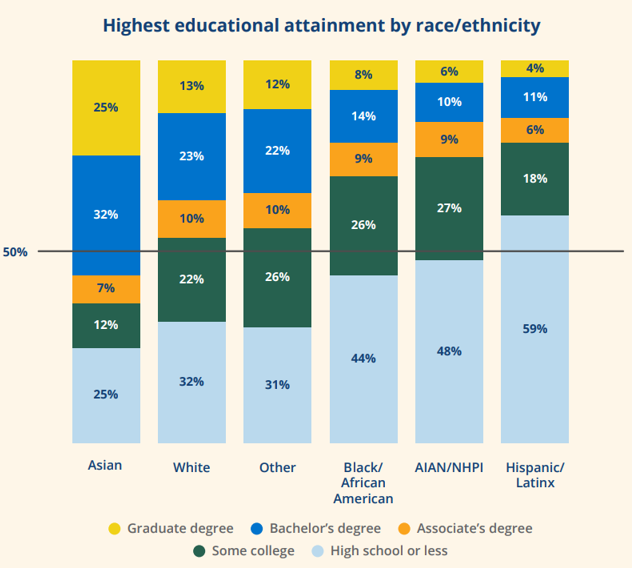 A May report from the Georgetown University Center on Education and the Workforce (CEW) makes the case that the U.S. loses about $1 trillion annually due to racial and economic injustices in higher education. The report suggests that it may take nearly $4 trillion to close those gaps, but over time, the benefits outweigh the costs. Further, working to equalize educational attainment would boost the GDP by more than $540 billion every year.
A May report from the Georgetown University Center on Education and the Workforce (CEW) makes the case that the U.S. loses about $1 trillion annually due to racial and economic injustices in higher education. The report suggests that it may take nearly $4 trillion to close those gaps, but over time, the benefits outweigh the costs. Further, working to equalize educational attainment would boost the GDP by more than $540 billion every year.
The report is centered on the fact that educational attainment is not equal across all racial and economic demographics. Although Florida and the nation have seen great gains in educational attainment for many groups, educational inequality remains persistent.
For example, only 21% of Latinx adults and 31% of Black adults in the U.S. have a postsecondary degree, compared to 46% of White adults. And among Americans with earnings in the top 60%, attainment is relatively high compared to Americans with earnings in the bottom 40%.
However, the report argues “the United States loses more by not achieving equal educational outcomes than it would spend by investing in educational equality.”
If educational outcomes were more equal by earnings and race — if all demographics had educational attainment as high as White adults and the top 60 percent of earners — at least 58% of people would have an associate degree or higher, compared with 40% presently. This would result in individual earnings increases and would benefit society by an estimated $956 billion annually.
Higher earnings result in more tax revenue and put more money into the economy. Indirectly, people with more education are less likely to be incarcerated, which would reduce public costs of nearly $14 billion annually. Further, people with more education tend to have better health outcomes, potentially saving nearly $60 billion annually. And those with higher education levels tend to use less public assistance for things like food and housing, potentially resulting in more than $30 billion in annual savings.
Although the report focuses on fiscal benefits of equal educational attainment, it notes the many nonmonetary benefits that would come with meeting the proposed attainment goals. For example, postsecondary education has a positive relationship with civic engagement, personal agency and self-empowerment, and appreciation for difference. These things can be harder to measure, yet overall, individuals and society stand to benefit in a myriad of ways that are not measured in monetary terms.
Ultimately, this research supports FCAN’s mission that when adults have access to high-quality education after high school, the state thrives. According to a 2020 joint survey from Helios Education Foundation and FCAN, the majority of Floridians believe that anyone, regardless of race or socioeconomic status, can achieve a postsecondary degree, yet Hispanic and Black Floridians were more likely to strongly disagree. Addressing barriers and increasing educational attainment is the best way to expand economic prosperity for the state and for Floridians. To build the talent pool required for the 21st century global economy, Florida needs to close opportunity gaps for low-income and underrepresented students in higher education.
This report was published in tandem with the work of the Postsecondary Value Commission which was previously featured on FCAN’s blog.
RELATED ARTICLES:
Putting Equity at the Center of Postsecondary Value
Is your county Talent Strong? Learn more!

